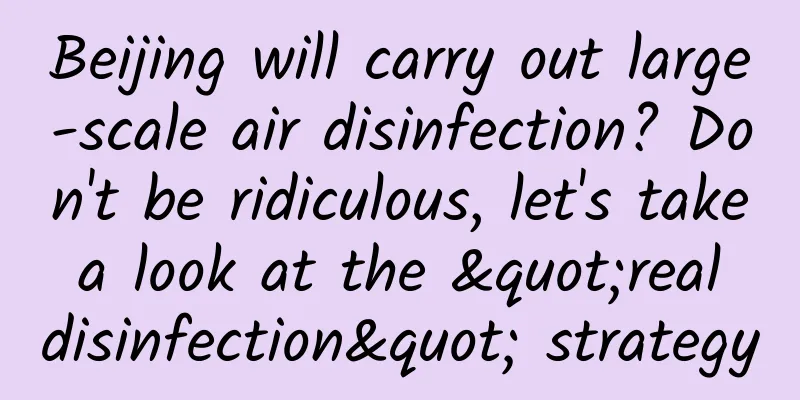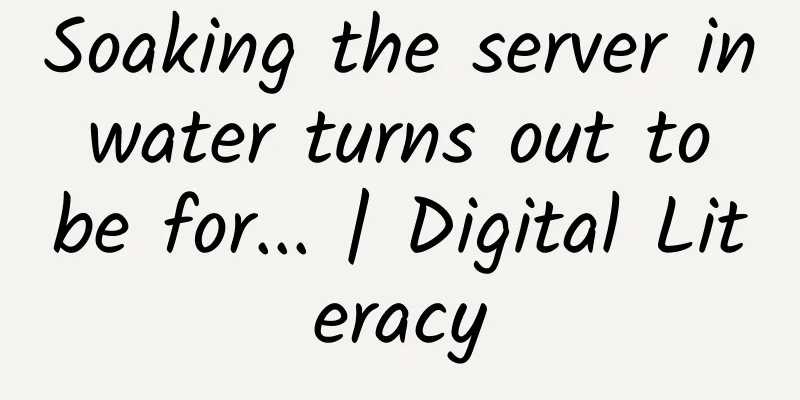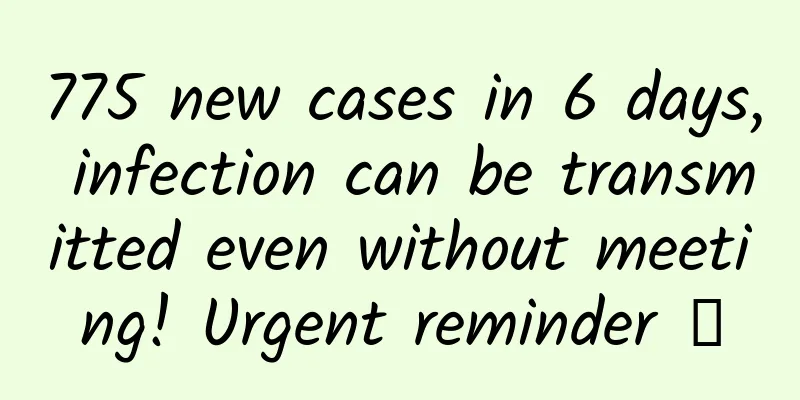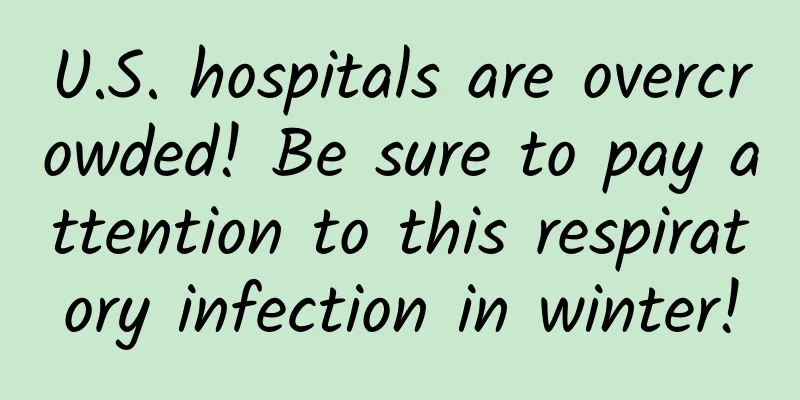Beijing will carry out large-scale air disinfection? Don't be ridiculous, let's take a look at the "real disinfection" strategy

|
Recently, rumors about large-scale air disinfection have appeared online. This incorrect disinfection method is not only ineffective, but may also be "toxic". How should disinfection be carried out correctly? These ten hot questions are answered for you. Compiled by New Media Editor Duan Dawei On May 6, according to @Capital Health Report, disease control experts believe that large-scale air disinfection in cities is of no significance for the prevention and control of the new coronavirus epidemic. Please do not believe the rumors on the Internet, and insist on normal prevention and control measures such as wearing masks when going out, opening windows for ventilation daily, and maintaining social distance. For COVID-19 prevention and control, disinfection is very important, especially when the opponent is the more contagious Omicron. For ordinary people, home protection must be implemented more effectively. However, there are still some misunderstandings about disinfection, such as disinfecting outdoor air, applying disinfectant but not enough dosage. These "ineffective disinfection" methods do not do what should be disinfected, and do not leave out what should not be disinfected, perfectly avoiding all the correct answers... So how to carry out effective disinfection? These ten hot questions are answered for you. 1. Why not disinfect the outdoor air? Zhang Liubo, a researcher at the Chinese Center for Disease Control and Prevention, once said, "There is no need to disinfect outdoor air. There is no need to use disinfectants to disinfect outdoor air." Because the probability of outdoor air being positive for the virus is very small, and even if aerosols containing viruses appear outdoors, the circulating air will quickly decompose and dilute them, making them almost non-infectious. In addition, spraying disinfection outdoors does not meet the required disinfectant usage and disinfection time. 2. What are the key points in daily disinfection at home? Home disinfection should focus on cleaning, supplemented by disinfection. Disinfection does not necessarily require the use of disinfectants. Physical disinfection methods such as sunlight exposure and heat are preferred at home. Key links and objects should be disinfected, such as tableware, express delivery, door handles, etc. Disinfectants should be prepared in appropriate concentrations according to the instructions for use and based on different disinfection objects, and carried out with appropriate disinfection methods. Take personal protection measures during disinfection. Wear a mask and gloves when preparing disinfectants, and do it in a well-ventilated environment. Use the prepared disinfectant as soon as possible. 3. What are the key points of personal daily preventive disinfection? First, choose legal and effective disinfection products, and follow the scope of use, disinfection concentration, disinfection method and disinfection time specified in the registered disinfectant (or equipment) instructions. Secondly, choose the appropriate disinfection method (wiping, soaking, spraying, atomizing), and take personal protection measures. Before disinfection, clean thoroughly; after disinfection, remove residues if necessary (except for some naturally degradable disinfectants). Be careful not to mix with other cleaning agents; disinfection should follow a certain order, first inside and then outside, and try to be one-way. 4. How to disinfect household items? Commonly used small items such as mobile phones, remote controls, mouse, door handles, faucets, various buttons, etc. can be wiped and disinfected with 70%-80% alcohol cotton balls or disinfectant wipes. Large objects such as desktops and floors can be disinfected by spraying, wiping or mopping with a disinfectant containing 500 mg/L of effective chlorine (bromine). Fabrics such as clothing and bedding can be exposed to the sun for 4-6 hours (be sure to turn them over so that both sides can be exposed to the sun), and generally no special disinfection is required. Washbasins and toilets can be disinfected regularly using chlorine-containing disinfectants. 5. How to disinfect after going out, taking nucleic acid test and returning home? Gently take off your coat and hang it in a ventilated place; take off your mask and hang it in a dry and ventilated place if you need to use it again; clean your hands with "soap/hand sanitizer + running water" in time. Put your shoes at the door and wipe the uppers with disinfectant wipes. Use 75% alcohol cotton balls or disinfectant wipes to disinfect your mobile phone, keys and other personal belongings. If conditions permit, you can divide your home into a "contaminated area" and a "clean area" and leave clothes and shoes brought back from outside in the "contaminated area". 6. How to disinfect the meat, eggs and vegetables you buy? There is no need to sterilize the meat, just soak and wash it several times. Keep eggs in a cool or refrigerated place. Before cooking, clean the egg shells. Wear a mask when collecting and arranging vegetables. Rubber gloves can also be used if available. Vegetables that are not easy to dehydrate or spoil (potatoes, radishes, onions, etc.) can be placed on the balcony for a period of time. Vegetables that are easy to dehydrate or spoil (green vegetables, garlic sprouts, bean sprouts, etc.) can be rinsed or soaked in slow water, drained and stored. 7. What are the commonly used disinfectants in households? During special periods, the disinfectants used are mostly high-level or medium-level disinfectants, mainly including: chlorine-containing disinfectants (84 disinfectant, sodium dichloroisocyanurate or trichloroisocyanurate, bleaching powder, etc.), peroxide disinfectants (hydrogen peroxide, chlorine dioxide, etc.), alcohol disinfectants, iodine disinfectants, etc., and some disinfectant wipes, etc. Disinfectants for clothing, air conditioners, washing machines, refrigerators, etc. are not included in this list and can be retained and used with the above disinfectants. 8. Can disinfectants be repackaged for use? If you use less disinfectant on a daily basis, it is generally recommended to buy small packages of disinfectant. It is not recommended to use them after repackaging, because self-packaging is easy to cause contamination, and disinfectants are volatile. If the concentration is reduced after opening the bottle, it will be used for a long time. If the disinfectant solution needs to be repacked, it should be labeled to avoid accidental ingestion and misuse, and it should be used up as soon as possible. 9. How should daily disinfection of office spaces be carried out and what should we pay attention to? First of all, the office should ensure ventilation so that polluted air can be discharged in time. When the temperature is not too low, open the windows as much as possible to ventilate and improve the air circulation in the room and corridor. At the same time, pay attention to keeping warm to prevent colds. The office environment should be cleaned daily, wipe with clean rags and mops with detergent and water. After use, the rags and mops should be cleaned in time, disinfected and dried before use. Public corridors, stairs, elevators, handrails, door handles, buttons and other surfaces of public objects that are frequently touched by hands should be disinfected more frequently and regularly and promptly. 75% alcohol or disinfectant wipes can be used for wiping and disinfection, or other surface disinfectants such as quaternary ammonium salts and chlorine-containing disinfectants can be used for disinfection according to the instructions. When taking the elevator, you must wear a mask properly, and you can use tissues, toothpicks, cotton swabs and other contactless methods to press buttons. 10. What constitutes excessive disinfection and what are the hazards? Spraying disinfectant all over the body and disinfecting the soles of shoes; spraying alcohol on masks for disinfection; disinfecting wheels; adding disinfectant to the humidifier; disinfecting every day for those with suspected symptoms who have no visitors and are not self-isolating; using high-concentration chlorine-containing disinfectants (effective chlorine concentration greater than 1000 mg/L) for disinfection, all of these are considered excessive disinfection. Excessive disinfection will lead to a significant reduction in bacteria in the normal living environment, insufficient stimulation to the human immune system, and make people more susceptible to illness. It may cause microecological environment imbalance and the production of super bacteria. It can easily induce physical allergies. It may also damage the skin, mucous membranes, and respiratory tract, and even cause poisoning. (Source: Beijing Municipal Health Commission, Shanghai Municipal Health Commission, The Paper, Shangguan News, China News Network, Jiemian News, Health Times, Science Popularization China, etc.) Produced by: Science Central Kitchen Produced by: Beijing Science and Technology News | Beijing Science and Technology Media Welcome to share to your circle of friends Reproduction without authorization is prohibited |
>>: There are diseases that have no known cause. What should we do?
Recommend
How to make your Tik Tok VLOG become popular content?
Tik Tok is a short video software used by many yo...
Three major strategies for advertising on Bilibili based on user needs
Most marketers who are eager for a young user bas...
Go to bed, old off-roader, the dark blue G318 is not for you
Recently, DeepBlue Auto CEO Deng Chenghao release...
Do you always remember things wrongly? Don’t panic! This means your brain is working properly…
Reviewer of this article: Chen Haixu, Deputy Dire...
APP promotion: How to acquire users through cold start?
Acquiring users is the beginning of achieving use...
Red Planet: A live streaming sales course that even people with no basic knowledge can understand
Introduction to the live streaming sales course re...
A man vomited blood and fainted after eating too much bamboo shoots! Don’t let bamboo shoots turn into “spring damage”, you must pay attention to these 3 points
Recently, the news that "a man vomited blood...
APP Promotion Activities: How to plan a screen-sweeping event?
Wang Zaixing, co-founder of New World, said in an...
Analyze the development of NetEase Cloud Music and QQ Music from the perspective of operation and business model!
O. Analysis Outline Figure 1. NetEase Cloud Music...
Weekly Science and Technology Talk | This "clairvoyance and super hearing" can help us better detect marine disasters
Among various oceanographic instruments, ocean bu...
Why do peaches have hair? What should I do if I am allergic to it?
I have three impressions of peaches. The first is...
Your cat is staring at you, does it actually want to eat you?
In the process of getting along with their cats, ...
Yahoo releases massive machine learning dataset for researchers
According to foreign media reports, Yahoo recentl...
Crazy! People who don’t have cats are starting to pick up Hericium erinaceus!
People who want to pet cats but can’t get them ar...
Did aliens really draw a circle in the desert?
In the desert grasslands of Namibia in southern A...









